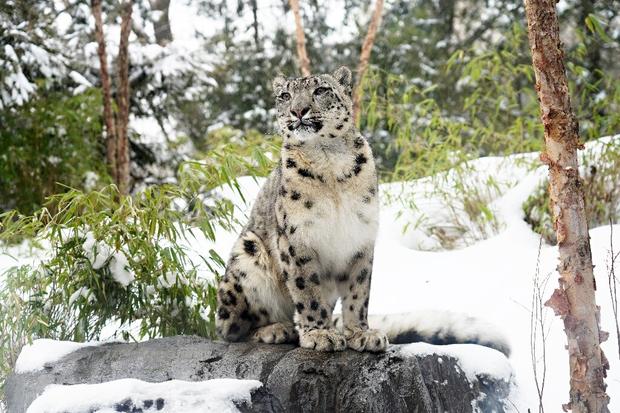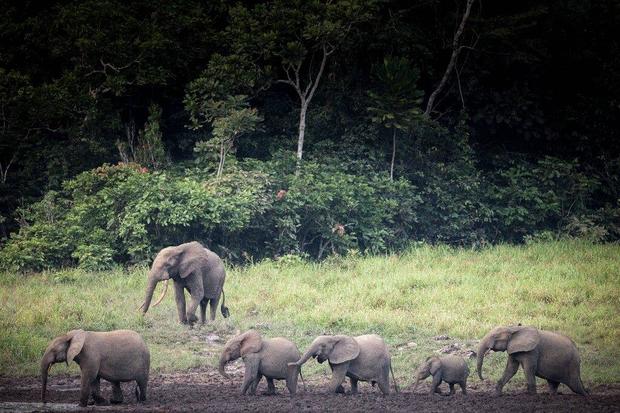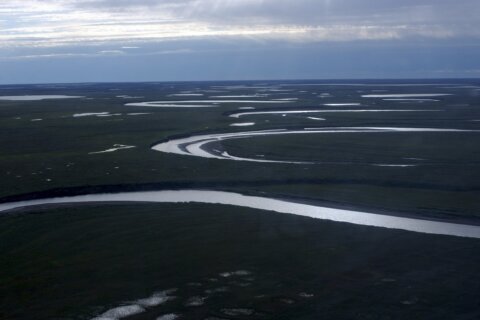▶ Watch Video: Time running out to save biodiversity as species go extinct, leading scientists say
Snow leopards in the Himalayas, lemurs in Madagascar and elephants in central Africa: Some of Earth’s most beloved creatures are on a path to extinction, a new study shows, thanks to current greenhouse gas emissions. Unless humans stop pumping carbon dioxide and methane into the atmosphere, researchers say the planet’s biodiversity will suffer devastating consequences.
In a study published Friday in the journal Biological Conservation, scientists warn that some of the richest concentrations of plants and animals on Earth will be “irreversibly ravaged” by global warming unless countries make a real effort toward their goals made under the 2015 Paris climate treaty. They report a high danger for extinction in almost 300 biodiversity “hot spots” if temperatures rise three degrees Celsius above preindustrial levels.
Under the Paris agreement, nations promised to keep warming “well below” two degrees Celsius. Even if these commitments are honored, temperatures are still expected to exceed three degrees Celsius before the end of the century.
So, which species will be hit hardest? Scientists point to endemic species: Plants and animals found exclusively in specific locations, like one country or one island — animals like snow leopards and forest elephants.
 So-called endemic species — plants and animals found only in certain zones — will be hit hardest in a warming world.
So-called endemic species — plants and animals found only in certain zones — will be hit hardest in a warming world.
Biological Conservation
They found that endemic land species, specifically in biodiverse hot spots, are nearly three times as likely to suffer losses due to climate change than species that are more widespread, and 10 times more likely than invasive species.
“Climate change threatens areas overflowing with species that cannot be found anywhere else in the world,” lead author Stella Manes said in a statement. “The risk for such species to be lost forever increases more than 10-fold if we miss the goals of the Paris Agreement.”
Not all species face the same threat. In mountain regions, 84% of endemic species face extinction if Earth warms another two degrees, while that number rises to 100% on islands.
Overall, more than 90% of land-based endemic species and 95% of marine ones will be adversely affected. Mediterranean marine species are particularly vulnerable because they are trapped in an enclosed sea.
 In mountain regions, 84% of endemic animals and plants face extinction in a 3C world, while on islands — already devastated by invasive species — the figure rises to 100%.
In mountain regions, 84% of endemic animals and plants face extinction in a 3C world, while on islands — already devastated by invasive species — the figure rises to 100%.
Biological Conservation
“By nature, these species cannot easily move to more favorable environments,” explains co-author Mark Costello.
Two out of three species in the tropics could perish due to climate change alone. And safe havens in biodiversity hot spots, which conservationists have worked to establish for years to protect these species, may prove useless in the face of climate change.
“Unfortunately, our study shows that those biodiversity rich-spots will not be able to act as species refugia from climate change,” said co-author Mariana Vale.
Scientists say every tenth of a degree matters to avoid the devastating consequences of a mass extinction event. But carbon dioxide and methane levels in the atmosphere continued to rise in 2020, with CO2 level reaching their highest point in 3.6 million years.
“The 2020 increase is likely to remain one of the largest in the entire record.” the the National Oceanic and Atmospheric Administration said.







